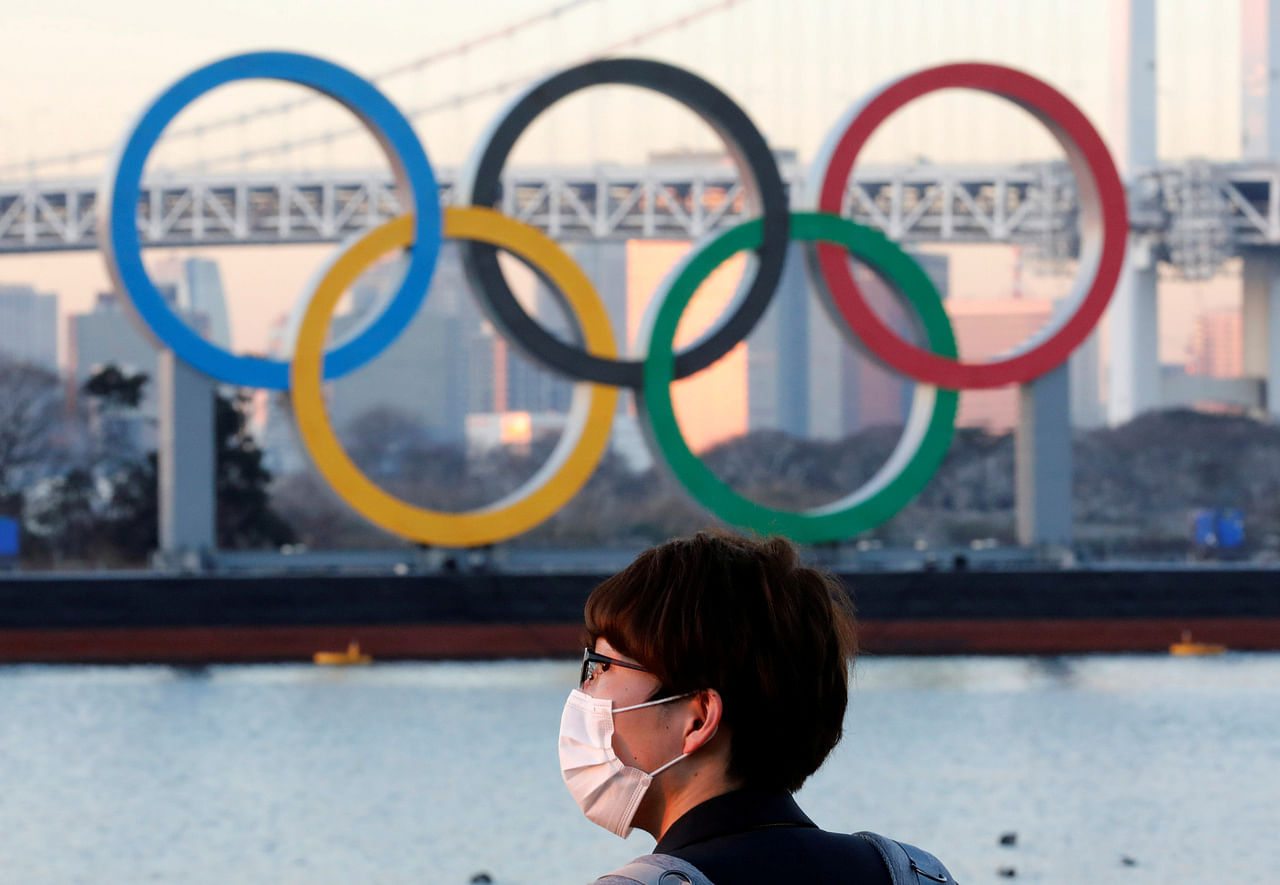Singapore athletes who need to go abroad for training, competitions to get priority for Covid-19 vaccine: Edwin Tong
Sign up now: Get ST's newsletters delivered to your inbox

There is a question mark over whether the Tokyo Olympics could be further delayed, given a spike in cases in Japan.
PHOTO: REUTERS
Follow topic:
SINGAPORE - Athletes representing Singapore who need to travel abroad to train and compete in events like the Tokyo Olympic Games will be prioritised for Covid-19 vaccination, said Minister for Culture, Community and Youth Edwin Tong.
The authorities will also design a quarantine programme that will allow athletes returning from abroad to train and maintain their fitness while serving their stay-home notice, he added.
Besides those who have qualified for the Olympics, the Government will accord priority to athletes who are travelling to take part in qualifying events for the Games, Mr Tong said in an interview on Tuesday (Jan 19).
"We don't want them to run the risk of coming back with Covid, and that will completely derail their preparations for the Olympics."
He noted that front-line workers and seniors remain "front of the queue" in Singapore's national vaccination plan, but "we are working within that framework to see what can be done for the athletes who fit the criteria".
Asked when eligible athletes will start receiving their jabs, Mr Tong said details are still being worked out. He added that it will depend on when a particular athlete has to travel abroad, the vaccination take-up rate and vaccine supply.
On whether vaccinations will be made mandatory for athletes going overseas, he said there will be no choice if organisers for events such as the Olympics or the SEA Games in Vietnam make it a requirement to compete.
"But as far as we're concerned, we will want to look at the safety of the athletes as a paramount consideration," he said. "We think it is much better for them to be vaccinated before they leave for such competitions, even if the venue does not mandate it."
Singapore's Covid-19 vaccination programme is voluntary.

The Tokyo Olympics, which was postponed by a year, is scheduled to start in July this year.
However, there is a question mark over whether the Games could be further delayed, given a spike in cases in Japan, which saw a state of emergency in the Tokyo region expanded beyond the area, and the fresh wave of Covid-19 infections around the globe.
On the specialised quarantine programme for returning athletes, Mr Tong said the aim is to ensure they can keep to their training regime as far as possible.
He cited the arrangements at the Australian Open, which allow some players out for five hours a day to practise on court, as an example the authorities are looking at.

Mr Tong said the aim is to ensure athletes can keep to their training regime as far as possible.
ST PHOTO: DESMOND WEE
His ministry is working with the various national sports associations and Sports Singapore on what training can be carried out even under quarantine, he said, adding that this will also depend on the prevailing Covid-19 situation in Singapore.
The minister also set out how he hopes Goal 2034 - the lofty target of having the men's national football team qualify for the 2034 World Cup - will benefit the sport in Singapore in the long term.
"If we make it to the World Cup, good. But if we don't, then I want to see at least that we've improved in our standards - our training facilities, training regime, quality of athletes, the base of players that we have," he said.
Football programmes and the quality of coaches should also improve, added Mr Tong, a former vice-president of the Football Association of Singapore (FAS).
"If we can't improve on all these, but yet we somehow qualify, I will not see this as success," he said.
His ministry is working closely with Sports Singapore and the FAS, and will announce the roadmap for Goal 2034 in due course, he added.

